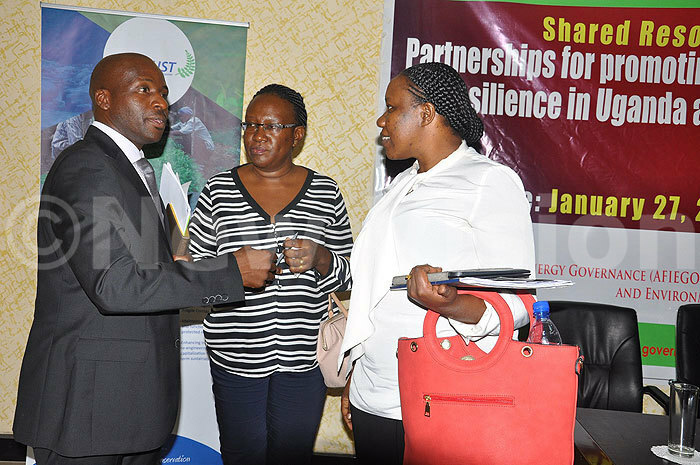'Use gas and electricity to reduce tree cutting'
CNOOC's Jessica Kyeyune says the use of gas for cooking will help avoid cutting trees for charcoal making.
The increased use of gas and electricity for cooking, lighting and powering manufacturing small and large scale industries can reduce on the cutting of trees to produce fuel for cooking.
Jessica Kyeyune, national content manager China National Offshore Oil Corporation Uganda (CNOOC), said Uganda should learn from Kenya and Ethiopia who made deliberate efforts to reduce depletion of forests in their countries.
This was during a panel discussion on Shared Resources Joint Solutions Program held in Kampala.
The program, sponsored by the Dutch government, aims to influence government and private sector policies and practices for the promotion, conservation and restoration of ecosystems.
It also aims to secure water, food and climate resilience amidst oil exploitation and forest degradation challenges in Uganda.
Kyeyune said the use of gas for cooking will help avoid cutting trees for charcoal making. In Kenya, gas suppliers have been encouraged to sell standard cylinders that can be refilled with gas from any supplier, she added.
Ethiopia is also understood to encourage the making of gas cylinders that can enable cooking with pots, commonly used in many villages. The use of fabricated wood can reduce the need to cut trees to make furniture, said Kyeyune.
Pauline Nantongo, executive director Environmental Conservation Trust of Uganda (ECOTRUST), speaking on the objectives and results of the program, said to protect forests, land users should adopt sustainable land use practices.
She said mandated institutions such as National Environment Management Authority (NEMA) and National Forestry Authority (NFA) should adequately manage protected area systems.
Nantongo added that districts should develop and enforce green and inclusive district plans, bylaws and ordinances.

The executive director of AFIEGO Dikens Kamugisha (left) talks to Marion Adengo (centre), the head of social affairs TOTAL and Sarah Bireete, the director of programmes at the Centre of Constitutional Governance during the launch of a pogram to protect the environment. (Credit: Francis Emorut)
Dickens Kamugisha, executive director Africa Institute for Energy Governance (AFIEGO), said Uganda should prepare to prevent bad things that come as the country enjoys opportunities from oil and gas.
"Oil exploitation in many African countries has not been a success story. Protecting the environment is one of the key things to do. We are not against oil exploitation but oil companies must comply with laws and standards to enable environment sustainability and biodiversity conservation," he said.
Joost Van Montfort, program coordinator at International Union for Conservation of Nature Netherlands, said ecosystems are the cornerstone of economic and social development.
"The degradation of the ecosystem affects the community that depends on it for their livelihood. Ecosystems are a public good, they matter, we all depend on it and we need joint solutions to maintain them.
"Conservation is more beneficial to society except to people involved in illegal timber cutting, illegal mining in forests," said Montfort.
President Yoweri Museveni has previously said the cutting of trees and encroachment of wetlands is a threat to the environment and to supply of water to Lake Victoria.
And according to him, by generating more electricity, the country can prevent the use of tree biomass for cooking.